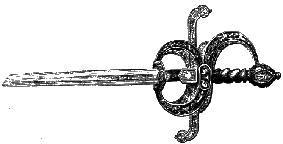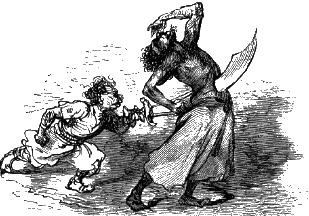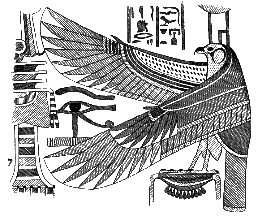 So why is Legendary Quest better? What makes
it different from other games?
So why is Legendary Quest better? What makes
it different from other games? So why is Legendary Quest better? What makes
it different from other games?
So why is Legendary Quest better? What makes
it different from other games?Battle system: Two of the biggest frustrations RPG players experience are that a system's combat rules aren't true to what would happen in real-life and/or that a system's rules, in an attempt to be true-to-life, are so overly-difficult that they end up detracting from the heat of the battle. For example, the effect of armor varies from one RPG to another. Imagine two combatants, Sir Fights-a-Lot, who wears plate armor, and Speedy Jack, who wears no armor at all. In many gaming systems, Sir Fights-a-Lot has the clear advantage because the rules say that wearing armor makes him harder to hit. But does it make sense in real life that the fighter in plate mail is harder to hit? In a real-life battle, when Speedy Jack runs up to Sir Fights-a-Lot with his stick, he can hit him because Fights-a-Lot can't move very well while wearing a virtual tank. In fact, Speedy Jack probably gets in double the amount of hits. However, Speedy Jack 's hits won't do much but make a dull clanking sound on the armor. On the other hand, when Sir Fights-a-Lot tries to bang Speedy Jack with his mace, he has a tougher time. Jack sees him coming and can easily move out of the way, unencumbered by weighty pounds of armor. However, when Fights-a-Lot does hit Jack, it won't just make a dull clank—it will HURT. Legendary Quest takes these facts into account, and thus offers simple yet realistic combat. In the above example, LQ's rules state that characters who choose to wear armor are "encumbered," or easier to hit, and thus have lowered defense ratings. So, while armorless combatants will take the full brunt of the damage they receive, they are likely to be hit less than their heavily armored counterparts.
 Effect of weapon skill and combat level
differences: Many RPG'ers that haven't been introduced to LQ lament
the fact that their dagger-wielding 12th level thieves only deliver
piddling damage to lowly 3rd level nasties. At that level of
expertise, a character should be dancing around the monster's lumbering
hulk, inflicting severe damage with well-placed pokes in his tender
spots. In LQ, this is never an issue of frustration. The high level
character you play has a correspondingly-high ability to stick his
dagger right where it hurts the most. Given the ease at which you can
learn to wield this simple weapon, you are able to gain this
effectiveness rather quickly. Also, LQ takes into account the
difference in combat experience between you and the nasty. The fact
that your character is 12th level and the nasty is the equivalent of
3rd level gives you a distinct advantage: 4 extra attacks!!
Effect of weapon skill and combat level
differences: Many RPG'ers that haven't been introduced to LQ lament
the fact that their dagger-wielding 12th level thieves only deliver
piddling damage to lowly 3rd level nasties. At that level of
expertise, a character should be dancing around the monster's lumbering
hulk, inflicting severe damage with well-placed pokes in his tender
spots. In LQ, this is never an issue of frustration. The high level
character you play has a correspondingly-high ability to stick his
dagger right where it hurts the most. Given the ease at which you can
learn to wield this simple weapon, you are able to gain this
effectiveness rather quickly. Also, LQ takes into account the
difference in combat experience between you and the nasty. The fact
that your character is 12th level and the nasty is the equivalent of
3rd level gives you a distinct advantage: 4 extra attacks!!
No more table lookups! Many games require GMs to look up values in tables every time someone attacks. In doing so, GMs often have to ask a variety of questions: "OK, what class are you, what level are you, what kind of armor are you wearing, and what did you roll?" Then they have to go to the table(s), look up the character's class and level, see what armor type he's trying to hit, and tell the player if he hit. In LQ, the Overlord merely states: "The monster's defense is a 25." The players take things from there: they make their attack rolls, add their attack bonuses, and determine whether they hit. And it's simple—if their roll plus attack bonus is equal or greater than the defense of the monster, they hit it.
Character customization: LQ offers great flexibility in
customizing characters because players "spend" their experience points
to suit their goals. For example, two thieves with the same class and
same level can have radically different abilities. One may be superior
with his weapon, while the other may be an excellent pickpocket.
Likewise, two wizards may have the same spells, but one could be much
better at throwing darts of fire, the other could zap you where you
stand with a different electrical spell. These wizards just chose to be
specialized in different spells. Also gone are the days when a fighter
finds a magical, exotic weapon and is instantly just as good with it as
he was with the long sword he's used his entire career. In LQ,
characters spend their experience in their weapon(s) of choice, getting
especially good with it, often (but not necessarily) to the exclusion
of others.
LQ's class system is similarly flexible. If a player so desires, his characters can start out with multiple classes, or even none at all! LQ also offers the concept of High Order Classes. These classes are the advanced stage of your character's chosen profession. For example, you may start out as a wizard's apprentice, knowing a few spells and being good at even fewer, but as you progress, you gain the full Wizard class, and then eventually move on to Pyromancer, Enchanter, and/or several other mage classes (which number in the dozens). Plus, characters who start out with the same beginning class can have radically different career paths after just a few gaming sessions. This is because each high order class has different prerequisites, causing players to customize their characters in ways to reach these requirements. Achieving the goals of high order classes makes the game much more interesting and makes your character more unique.
Leveling: In many gaming systems, it is difficult to integrate new characters and players into existing groups. New characters never catch up with the characters who had been in existence for a few game periods longer—it is almost as if the newbie characters remain perpetually first-level. LQ's design avoids these problems, and therefore is a system that makes for more interesting game play. LQ allows players to get hooked with some quick, small successes, as one successful fight may suffice to move a character to second level. However, every level after that requires double the previous amount of experience, which causes a balancing effect. New characters catch up quickly, making game sessions more enjoyable for all.
 Mythological correctness: Though other
gaming systems are good fun, they tend to stray far from their folklore
roots. The author of LQ spent many long years researching the origins
of the mythology on which to base his game (see the Bibliography ).
Overcoming some of the preconceptions bred from playing previous game
systems was a major hurdle. For example, in other gaming systems, the
hobgoblin is portrayed as a bigger, meaner version of the goblin.
However, according to mythology, hobgoblins were a small, beneficial
faery folk—not big, mean monsters. Hobgoblins were actually the
mythological decendants of the Hobbit / Halfling races. In many game
systems, monsters or their abilities are either completely made up or
bear little resemblance to their mythological heritage. While this may
not detract from the fun of the game, most FRPG players are intelligent
and truth-seeking, which makes LQ more of a learning experience.
Mythological correctness: Though other
gaming systems are good fun, they tend to stray far from their folklore
roots. The author of LQ spent many long years researching the origins
of the mythology on which to base his game (see the Bibliography ).
Overcoming some of the preconceptions bred from playing previous game
systems was a major hurdle. For example, in other gaming systems, the
hobgoblin is portrayed as a bigger, meaner version of the goblin.
However, according to mythology, hobgoblins were a small, beneficial
faery folk—not big, mean monsters. Hobgoblins were actually the
mythological decendants of the Hobbit / Halfling races. In many game
systems, monsters or their abilities are either completely made up or
bear little resemblance to their mythological heritage. While this may
not detract from the fun of the game, most FRPG players are intelligent
and truth-seeking, which makes LQ more of a learning experience.